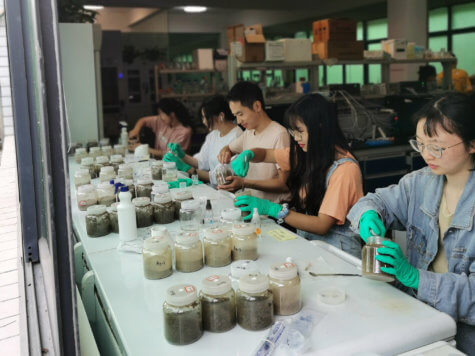YORK, England — Weedkiller could be making antibiotic medicines less effective, warns a new study. While herbicides are commonly used on farms to target weeds, scientists say they can cause damage to soil microbes like bacteria and fungi. Researchers show that mutations which improved the ability of bacteria to survive and grow despite herbicides also made them more tolerant to antibiotics.
Bacteria can also pass genes between each other and herbicide exposure led to them passing antibiotic resistance genes more often.
The study, led by researchers at the University of York, examined fields in the UK and 11 Chinese provinces. Researchers fear that farms treated with herbicides could be contributing to worrying levels of antibiotic resistant infections seen in humans.

Even very low levels of common weedkillers like glyphosate, glufosinate, and dicamba caused greater antibiotic resistance.
Biologists say that risk assessments often do not consider the effects of herbicides on soil bacteria over a long period of time.
“Our results suggest that the use of herbicides could indirectly drive antibiotic resistance evolution in agricultural soil microbiomes, which are repeatedly exposed to herbicides during weed control,” says Dr. Ville Friman, from the university’s Department of Biology, in a statement. “Interestingly, antibiotic resistance genes were favored at herbicide concentrations that were not lethal to bacteria. This shows that already very low levels of herbicides could significantly change the genetic composition of soil bacterial populations.
“Such effects are currently missed by ecotoxicological risk assessments, which do not consider evolutionary consequences of prolonged chemical application at the level of microbial communities,” he continues. ”While antibiotic resistance genes are not harmful per se, they will reduce the efficiency of antibiotics during clinical treatments. Keeping the frequency of resistance genes low will hence prolong the long-efficiency of antibiotics. As resistance genes can easily move between environments, agricultural fields could be globally important source for resistance genes.”
The findings have been published in the journal Molecular Biology & Evolution.
SWNS writer William Janes contributed to this report.
